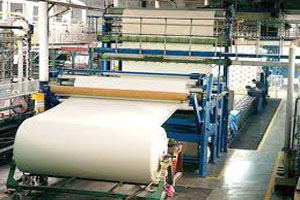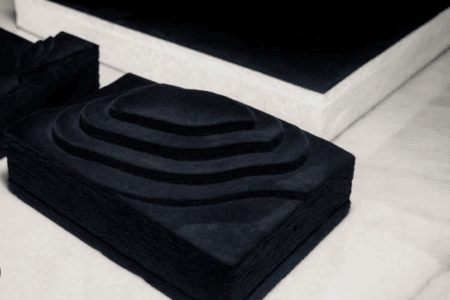
Pakistan make to order manufacturing industry faces procurement problem
YarnsandFibers News Bureau 2015-04-20 12:00:00 – KarachiPakistan home textile, garment and towel sector together account for more than $10 billion of it’s exports to European and North American customers and more than 50% of the country’s total exports. They operate much like an ‘a la carte’ restaurant where each meal is prepared fresh to serve each customer’s unique culinary demand.
The three sector operate under a philosophy called the ‘make-to-order manufacturing strategy.
Large western retailers, to whom this industry sells, rely on their sophisticated software to sift through the retail data coming live from thousands of their retail outlets. The software determines which designs are selling and which ones are not.
This demands continuous inputs from designers and their procurement staff. The former modify their designs while the latter keep fine-tuning the re-order quantity of merchandise being sourced from the country.
From the moment a firm order is placed, a manufacturer has 4 to 12 weeks to ship it. This time is equally split between procurement and in-house manufacturing activities. The former consumes more than 65% of manufacturer’s sales revenues. Thus, their $10 billion industry approximately spends $6.5 billion on procurement of raw materials, more than twice the country’s annual defence procurement budget.
The quantity of materials ordered has to be accurate too. If ordered short or not ordered at all, the production would halt and the customer order would be delayed, resulting in heavy late shipment penalties. The fact that ultimately the factories do ship their order proves that all materials are procured after all. There are more risks involved when ordering materials in excess, ie, over and above the legitimate requirements of the order. In this case, the error is least likely to be detected. It instantly turns leftover materials into worthless dead stock.
A fabric print, a zipper or a button can be so unique that it may only be used in a single order and nowhere else.
The human effort required to determine correct procurement requirements for make-to-order sector is mind numbing. A single order for trousers may involve 10 sizes and 3 colours, thus 30 Stock Keeping Unit (SKU). Each SKU may need 20 different materials such as fabrics, linings, zippers, eyelets, rivets and buttons. Each order may require up to 600 separate calculations to determine its materials.
A mid-sized factory would normally handle a minimum of 50 such orders at any given time. Since all orders contain unique products, this could involve 30,000 unique raw materials to be purchased over a three-to-four-week time window. That’s 1,000 unique items a day. Working with a team of a dozen or so merchandisers, it’s still 200 unique procurement calculations per day per person.
By purchasing materials in correct quantity, a make-to-order manufacturer can avoid losses up to 3% of its revenues. The businesses to buy materials in correct quantity need to deploy a sophisticated technology of Material Requirement Planning (MRP).
Market Intelligence
Ask for free sample Report

experience
Customer Base
dedicated team
Countries Served Worldwide









